MCCU Organizes Seminar Entitled "Confronting Rumors and Electronic Misinformation" in Presence of Information Security Experts
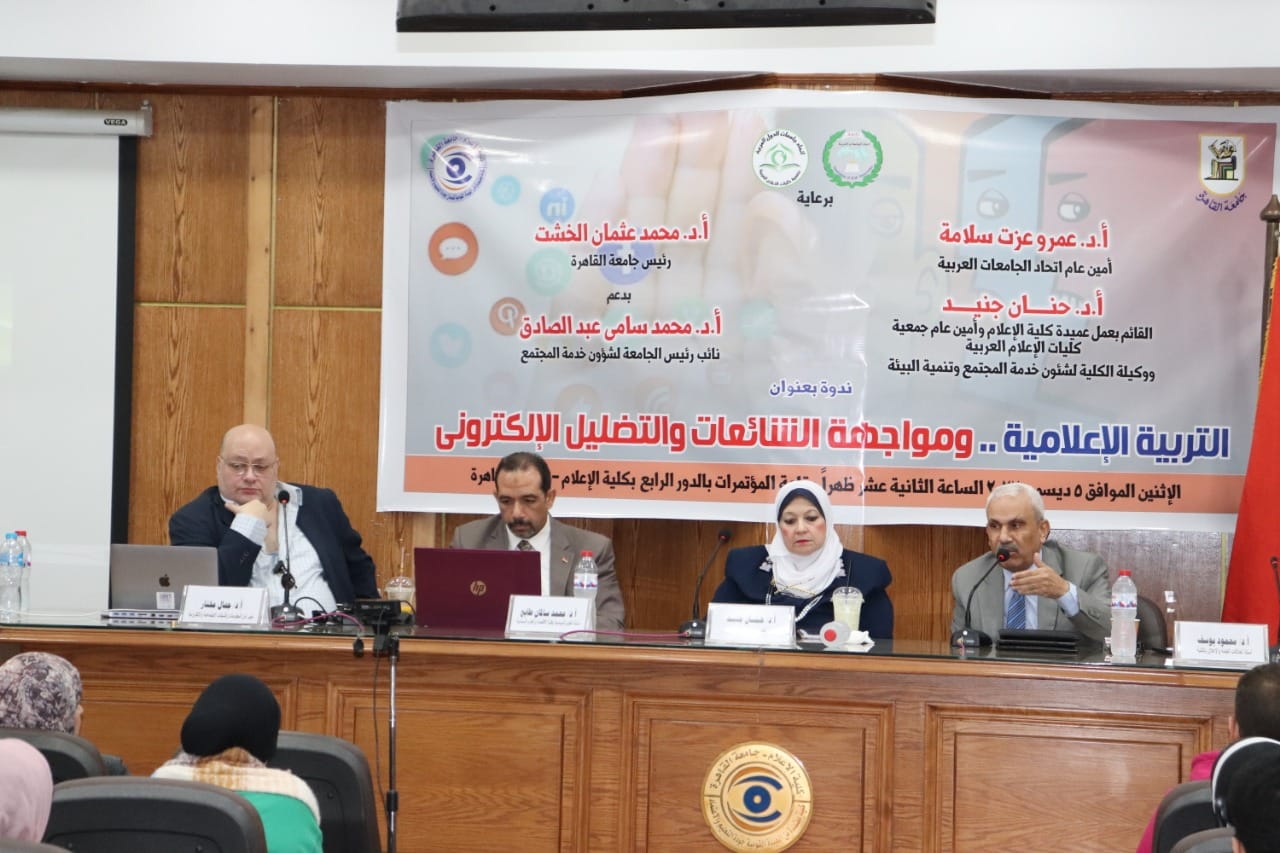 close
close
![]()


The Faculty of Mass Communication, Cairo University, organized an awareness symposium entitled "Media Literacy and Confronting Rumors and Electronic Disinformation", under the auspices of Dr. Amr Ezzat Salama, Secretary General of the Association of Arab Universities, Dr. Mohammad Othman Al-Khosht, President of Cairo University, and Dr. Hanan Gunaid, Faculty Dean, with the support of Dr. Mohamed Sami Abdel Sadik, Vice President for Community Service and Environmental Development, and in the presence of a group of guest speakers, Dr. Jamal Mukhtar, information security expert, Prof. Dr. Mahmoud Youssef, former vice dean of the Faculty, Dr. Mohamed Salman Taya, Vice Dean for Community Service Affairs at Faculty of Economics and Political Science, Cairo University.
At the outset of the awareness seminar, Dr. Hanan Gunaid welcomed the guest speakers, explaining that today`s symposium comes within the framework of spreading media literacy among students, and confronting ways of falsifying news and exposure to misleading content through media or electronic platforms on social media, expressing her gratitude to the guests and their response to the invitation to participate as speakers in it, and the students for their active participation and attendance to introduce the experiences of confronting ways of misinformation and electronic counterfeiting
After that, the speech of the guest speakers began, with the presentation delivered by Dr. Gamal Mukhtar, information security expert, explained to the audience what is related to the name of false or false news, and how it is a term that denotes what is described in form as news whose content is not based on facts, and exists for the purpose of misleading, noting that it is the preferred weapon to form convictions or spread terror by distorting the truth, or deception by cropping out part of a scene from within its context.
.
The information security expert revealed that when talking about fake news, he does not mean simple journalistic errors, but rather refers to it as a process with a special methodology that includes different practices and motives aimed at misleading those who follow it away from the truth who may not know how to search for the truth or even knowing that it is his duty, or they have the skill and sense to know the methods of misleading, but they fell into the trap of their enemies who are specialists in forgery, however, the worst of them are those who deliberately use misleading as a tool to achieve their goal to control public opinion.
The information security expert’s speech revealed that misinformation professionals through electronic platforms pursued a method of searching for access to high numbers of interactions in searching for and publishing news without verifying them, which leads the audience to deception, explaining that forms of misinformation have evolved and reached the point of falsifying the interests of the audience of the social media sites themselves. This is done by launching systematic campaigns with false accounts using technical methods to falsify the results of public opinion and mislead the public.
Dr. Gamal Mukhtar pointed out ways to confront media misinformation through the eradication of "electronic illiteracy", which he explained that it means the absence of basic knowledge and skills to deal with modern machines, devices and inventions, including computers, and that he calls the concept of electronic illiteracy modern illiteracy, to distinguish it from alphabetical illiteracy, which means the inability to read and write, explaining that digital literacy is one of the important topics on the agenda of the world’s concerns, and that dealing with electronic media remains fraught with risks unless it is possible to own these media on the one hand, and how to deal with them on the other hand.
.
In turn, Prof Dr Mahmoud Youssef, former Vice Dean of the Faculty of Mass Communication, Cairo University and professor at the Department of Public Relations, said that verifying information has become one of the weakest points through which it is possible to combat false news, which is intended to be wrong or misleading information, which takes the form of real news. In general, false news is divided into categories, namely news that is intentionally misleading, that is, the people who publish it know it is false but publish it anyway, and this may be to manipulate public opinion or direct traffic to a particular website, and those news that contain elements of the truth, but are inaccurate in their entirety, and the reason may be in this is that the writer did not investigate the validity of all the facts, or exaggerated some aspects to prove a certain point.
The professor at the Department of Public Relations noted during his speech that the Internet and the media have changed the way it is formulated and promoted, and that social media is considered the largest means of spreading counterfeiting, which helped it by providing the means for the public to spread and promote lies, indicating that before the advent of the Internet, people tended to receive their news from reliable media sources whose journalists were required to follow strict rules of practice, then the Internet came and provided new ways to disseminate news and information and shared and viewed, with a relative lack of organization and editorial standards.
Dr. Mahmoud Youssef`s speech included the causes of the fake news crisis, as sometimes deep faking technology is used, which is fake video clips created using digital software, machine learning, and face swapping. The images are combined to create new footage that shows events or actions that did not happen and the results can be very convincing and hard to spot as fake.
Dr. Mohammad Salman, Vice-Dean of the Faculty of Economics and Political Sciences, referred to the Renaissance Dam crisis and how the content of false information and false news about this file was marketed, which led to strengthening the misconception about Egypt`s water shares and gaining the Ethiopian side support for the issue of the water file and the Renaissance Dam, explaining that there are different types of fake news, depending on the motives of those who create it. For example, click-baiting headlines and news with the intent of popping may flourish to attract audiences, and obscene or outlandish stories and distorted images can lead to increased clicks and engagement online. As well as misleading headlines, which sometimes come with true news in its entirety, but an exciting or misleading headline is used to urge readers to click on it, and this may lead to the promotion of false news, and what helped in this was social media, as it enabled rapid publication.
Regarding the mechanism of fake news, Salman noted during his speech that false news is often spread through fake news websites, which often mimic authentic news sources in an attempt to gain credibility. According to research, social media enables false claims to spread, which causes them to spread faster than real news. In fact, fake news spreads quickly because it is usually designed to attract attention and attract emotions. This is why they often contain outlandish claims or stories that stir up anger or fear. Social media bots can spread fake news because they generate and disseminate articles at scale, regardless of the credibility of their sources. AI programs can create fake online accounts, which then gain followers, esteem, and authority, and some are programmed to spread disinformation.
.
At the conclusion of the audience speech and honoring the guest speakers, Dr. Hanan Gunaid, announced the launch of the rumor monitoring unit at the Faculty, and a competition among students in the field of electronic literacy, through which students present their activities in the field of electronic literacy.
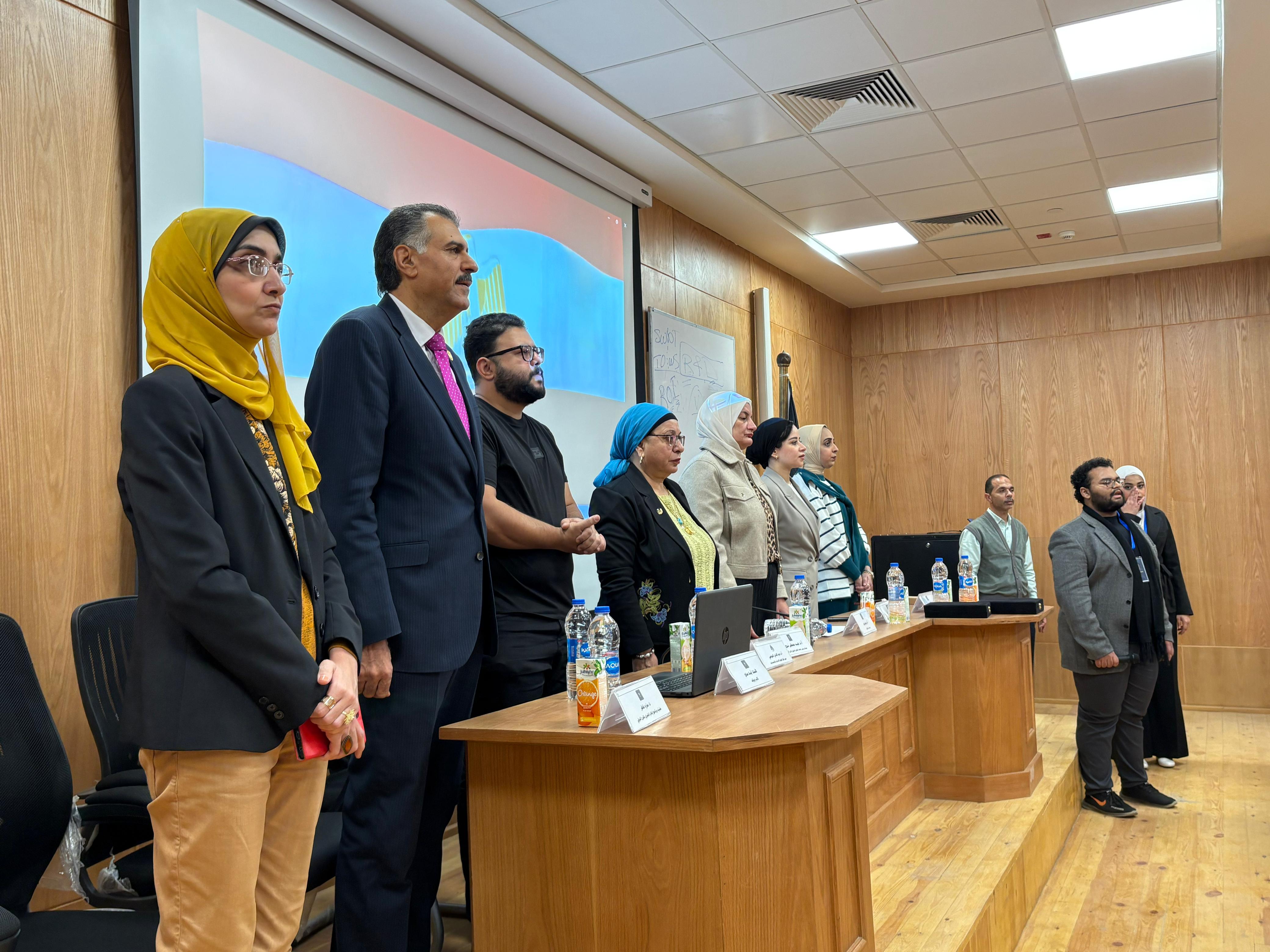
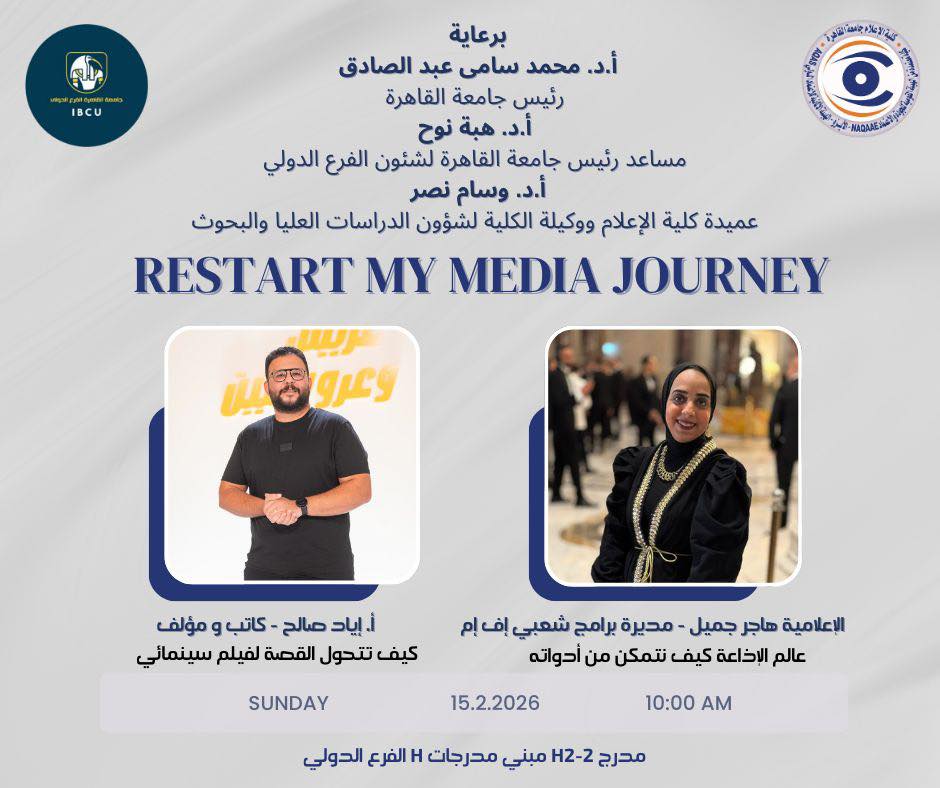
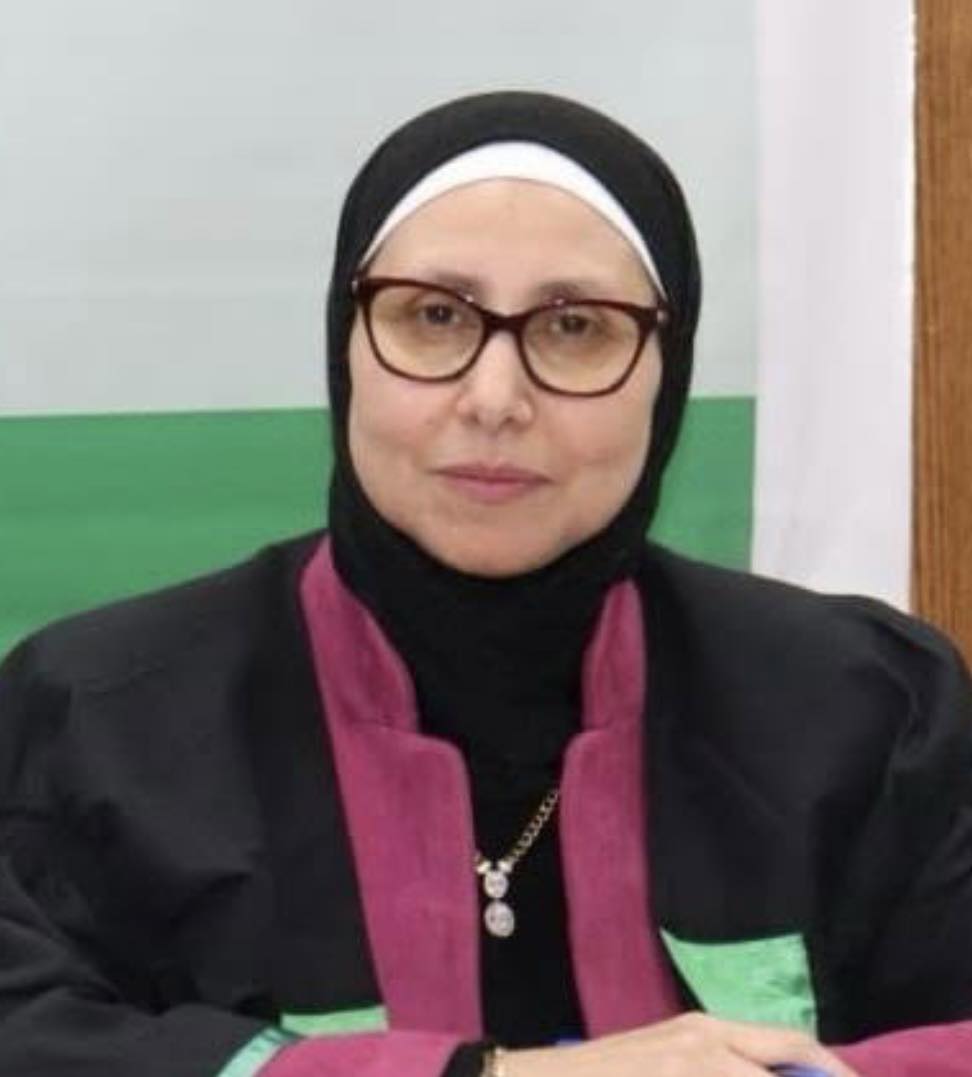
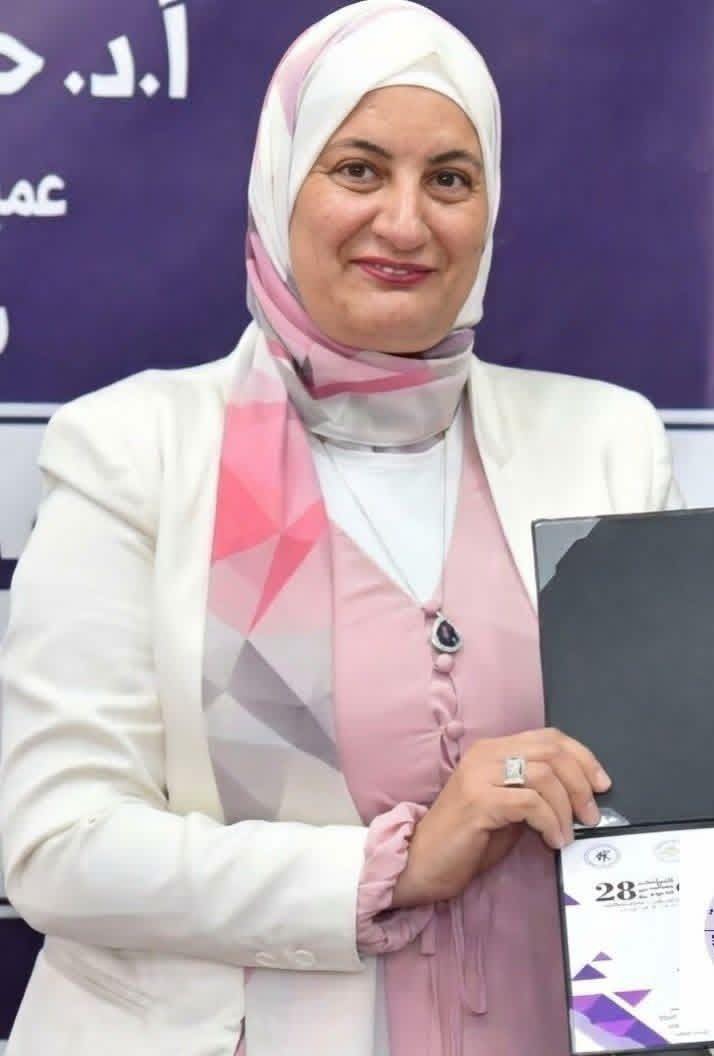
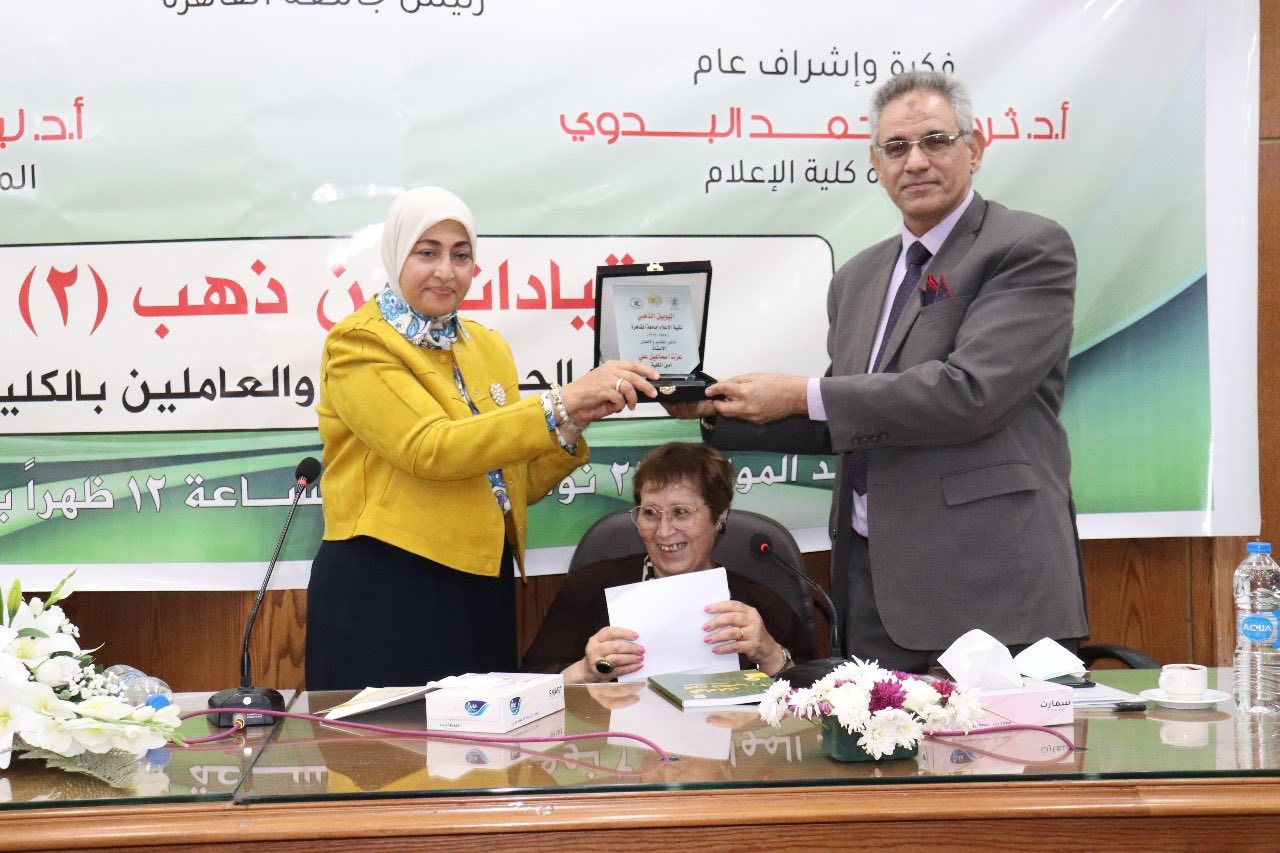
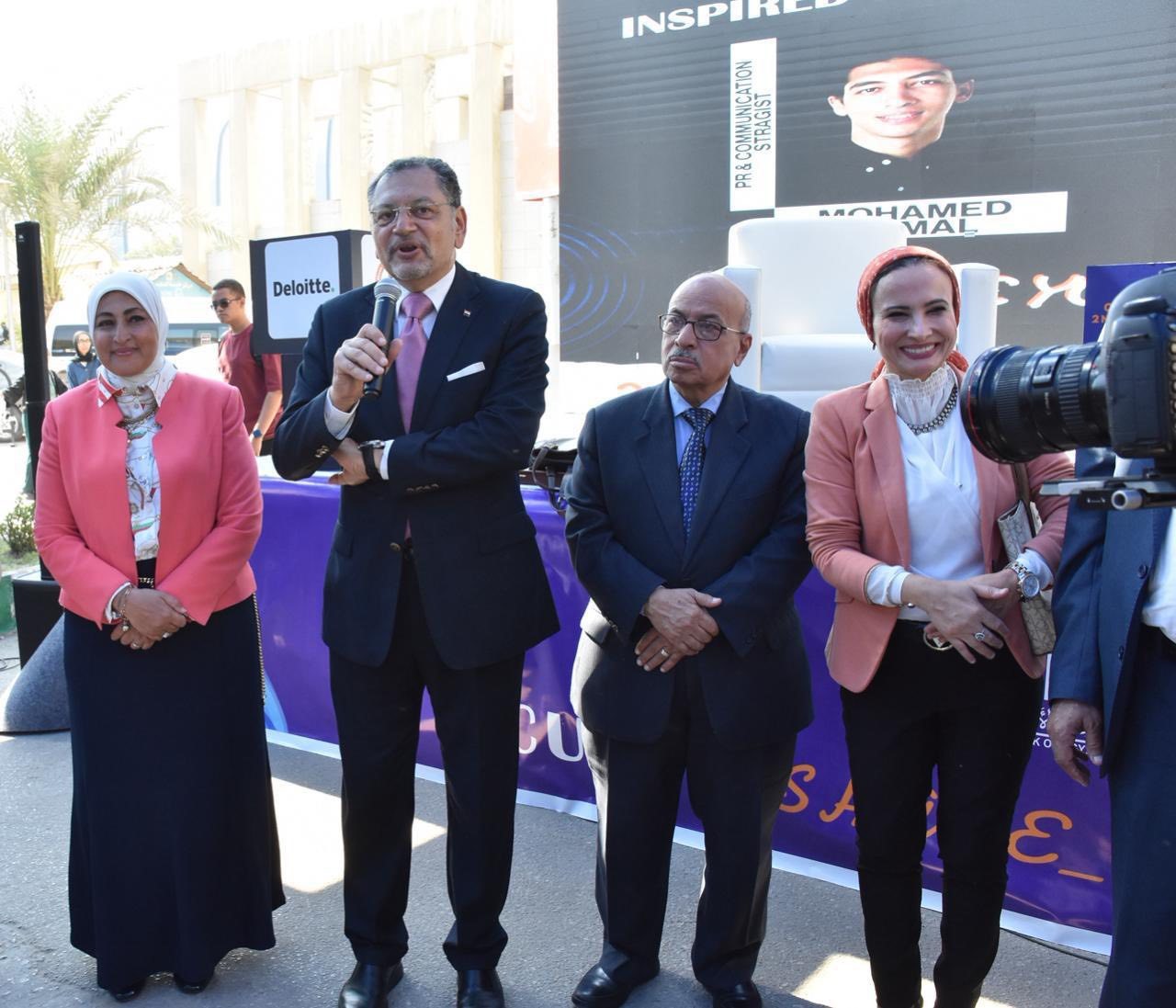

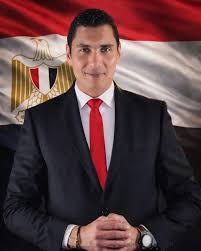
27-02-2026 Sports

15-02-2026 Faculty of Mass Communication

15-02-2026 Sports

15-02-2026 Sports

23-06-2023 Sports 4173
...
tips from the head of dmc channels group- mr.hesham soliman02-08-2023
video 3411...
Exclusive Interview with the Prominent Host (Eman Ezz Eldin) for EMccu today27-10-2022
video 1256...
Culture of Photos Event Guests` Interviews (Pt.2)01-04-2023
video 1155...
Culture of Photos Event Guests` Interviews (Pt. 1)01-04-2023
video 1040...
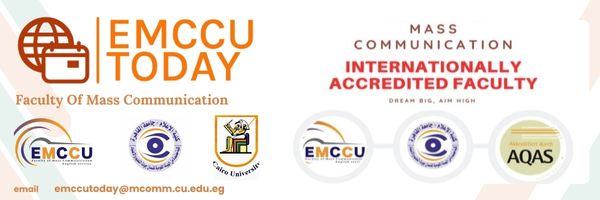
27-10-2022
video 3881